6 Subtle Signs You’re Eating Too Many Sweets
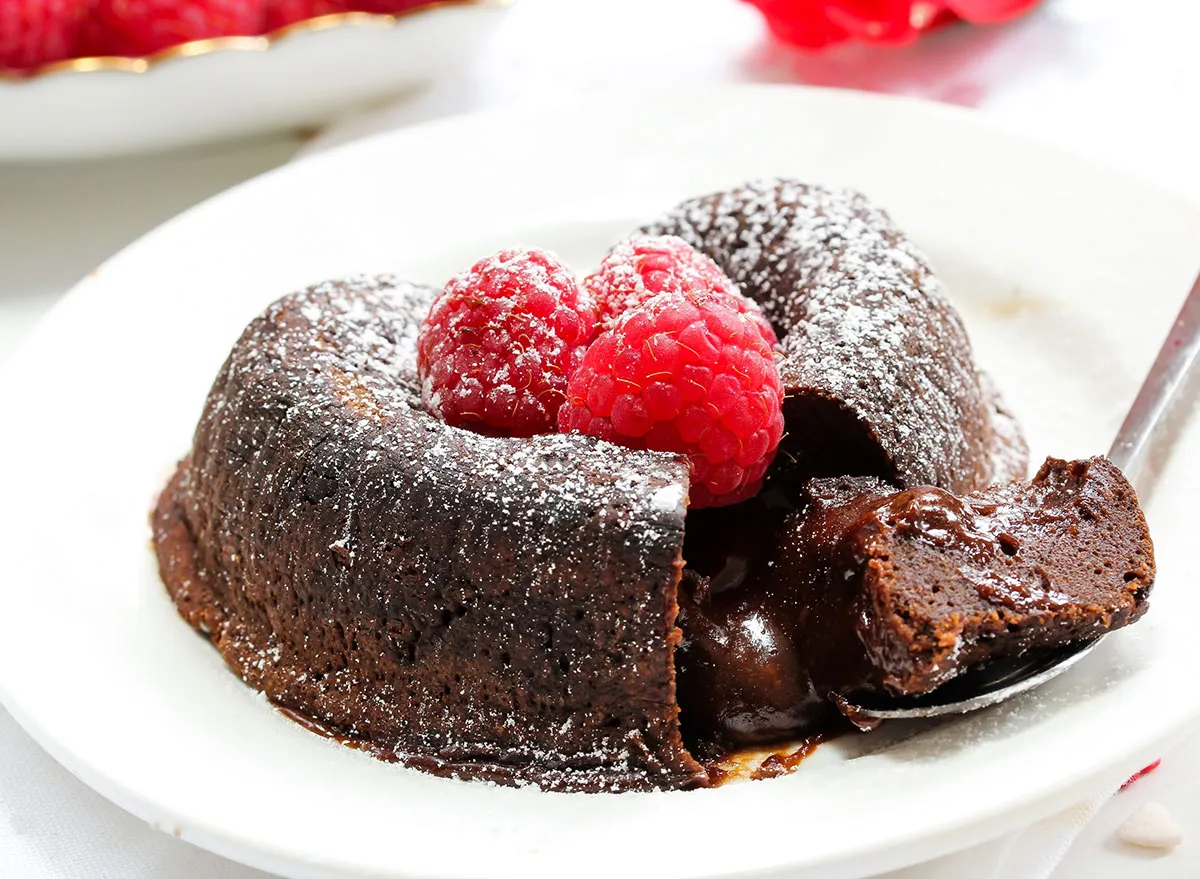
Chocolate cake, snickerdoodle cookies, gummy worms—everyone knows that sugar is downright delicious. But everyone is also equally aware that their favorite sweets aren’t healthy (… like, at all).
“Ignorance isn’t bliss when it comes to sugar,” says Rachel Beller, RDN and author of Power Spicing. “There’s a negative association with eating sugary foods because it’s widely known that they’re bad for you.”
Sugar earns its bad reputation: Not only is added sugar not real food, but years of research have proven that high-sugar diets can negatively impact your body in many ways, causing problems like weight gain, high blood pressure, diabetes, and heart disease.
The American Heart Association suggests that men consume no more than 150 calories (nine teaspoons) of processed sugar a day; that’s equivalent to about one 12-ounce can of soda. For women, it’s no more than 100 calories (six teaspoons). For your health’s sake, watch out for the following six subtle signs from your body that it may be time to reign in your sweets intake.
Fatigue

“A diet that’s high in sugar but contains no fiber or protein lacks balance,” says Beller. “High processed sugar intake will cause a person’s blood sugar to boost, then suddenly drop, which leaves you feeling really low and drained.” Ultimately, it also leads you to reach for more “quick hits” of refined carbs for energy, and the ups and downs of this roller coaster are both physically and mentally exhausting.
If you’re feeling constantly sluggish, replace your sugary snacks with something more wholesome that doesn’t affect your blood sugar as much, like veggies. (Related: 23 Homemade High-Protein Snacks You Can Make in Minutes.)
Hunger

Foods like cakes, cookies, and candies that contain a lot of added sugar are full of “empty calories”—meaning they lack fiber and lean protein, macronutrients that make you feel full and satisfied.
So if you’re eating bowls of Lucky Charms and calling that “breakfast,” you’re going to be hungry again in an hour.
Consider this: Apple juice (which is made with tons of simple sugar) is something your body will just burn right through and leave you hungry. But an apple—which has some natural sugar, but also fiber—offers a sustained level of satiety that will keep you feeling fuller longer. Now, add a few cashews for some protein, and you have a well-rounded snack that will keep you going! (Related: The 50 Best Healthy Snacks for Weight Loss.)
More sugar cravings
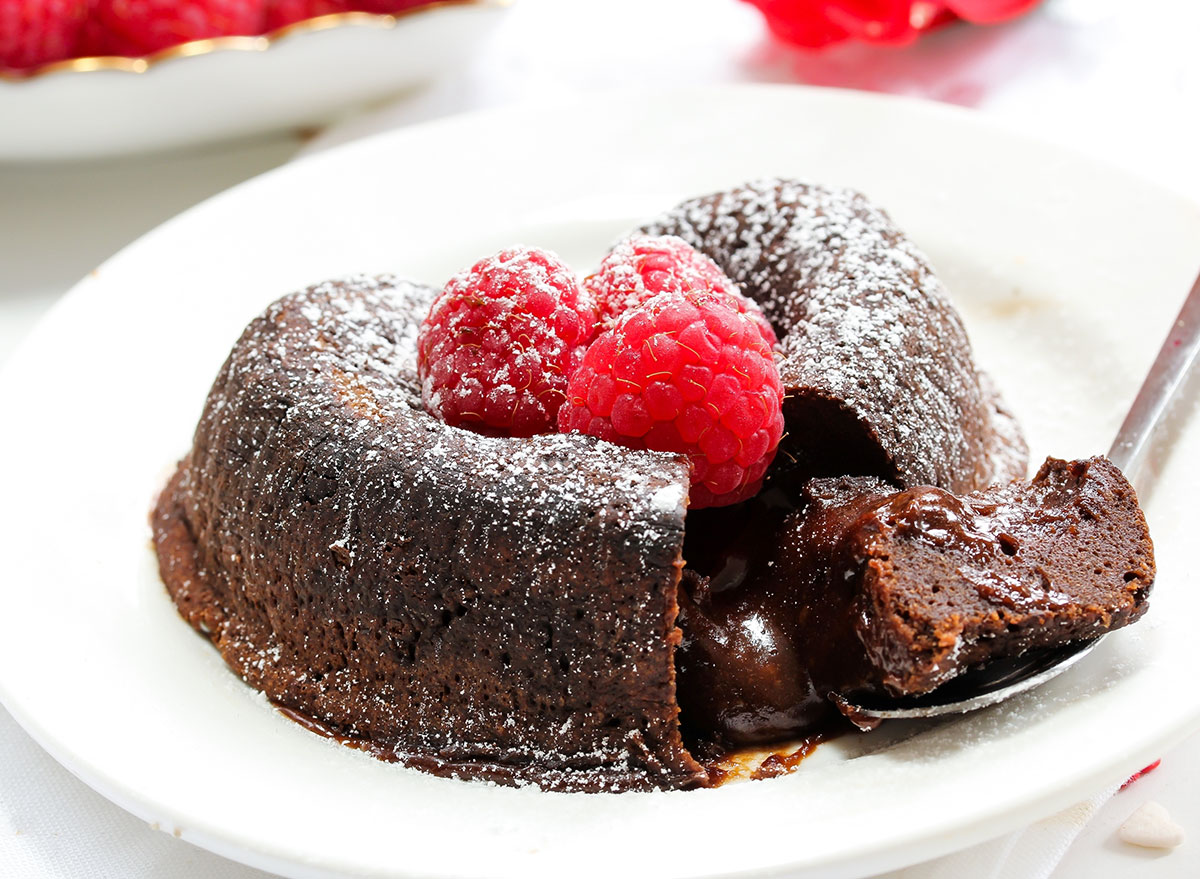
“With sugar, the more you eat, the more you crave,” says Beller. Eating sugar releases dopamine, your feel-good hormone—and that blissful first taste of cake after dinner (even if you’re full), can lead you down the path of constantly treating yourself out of habit. Your body actually becomes conditioned to think, “I need chocolate.”
Beller says you can slowly wean yourself off sweets and retrain your palate to want less sugary items. For instance, if you always get four pumps of syrup in your morning latte, lower it to three pumps next time; then, move down to two, one, and boom—you will eventually prefer black coffee. (Related: 40 Foods Nutritionists Told Us You Should Be Eating Every Day.)
Acne
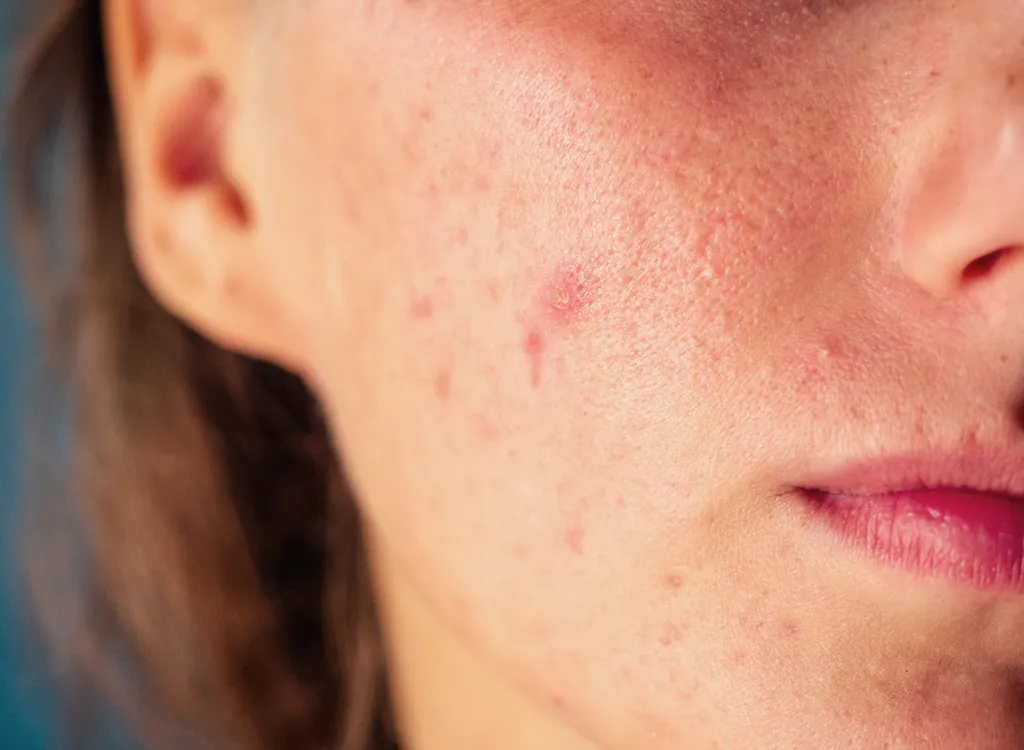
While it isn’t yet proven that eating sugar directly causes breakouts, research shows that a diet full of high-glycemic-index food is definitely linked to acne. Processed sugar’s high glycemic index raises your body’s insulin levels at a faster rate than foods with a low glycemic index; this “spike” can make your body more prone to inflammations of all kinds, including unsightly acne.
A 2012 study that examined 2,300 teenagers revealed that those with a more sugary diet had a 30% higher chance of developing acne.
The good news: Beller says if you stop eating so much processed sugar, you should notice clearer, less-oily skin in a few months. In fact, one of our Eat This, Not That! editors tried giving up chocolate for two weeks and was blown away by the results.
Bloating
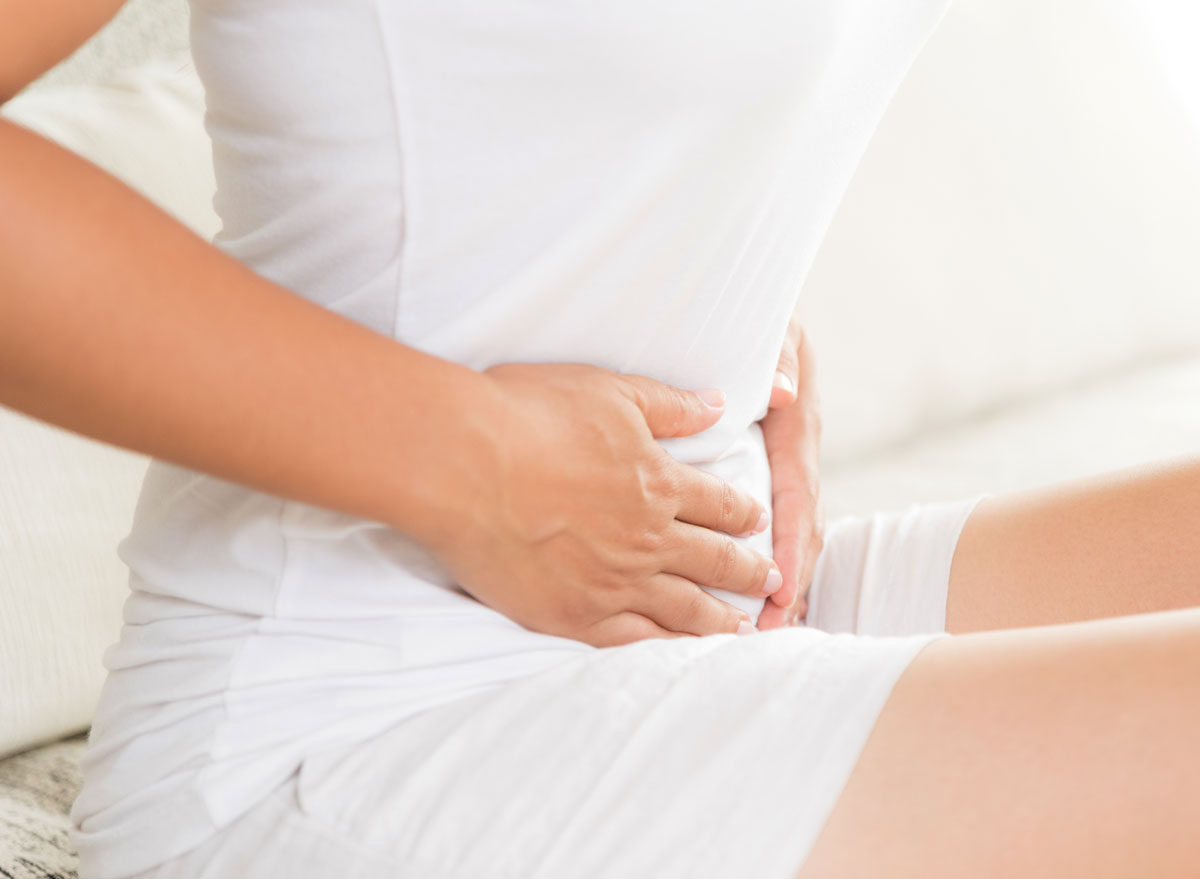
Many people associate “the bloat” with eating too much salt, but eating a ton of sweets can also cause gastrointestinal discomfort.
“The bad bacteria in your gut loves sugar,” says Beller. Since your body has trouble digesting this processed sugar, consuming a lot of it can cause an abnormal balance in your gut (also called dysbiosis), leaving you feeling bloated and gassy. (Related: Is What You’re Experiencing Weight Gain or Bloating?)
[Slidetitle num=”6″]Insomnia[/slidetitle]
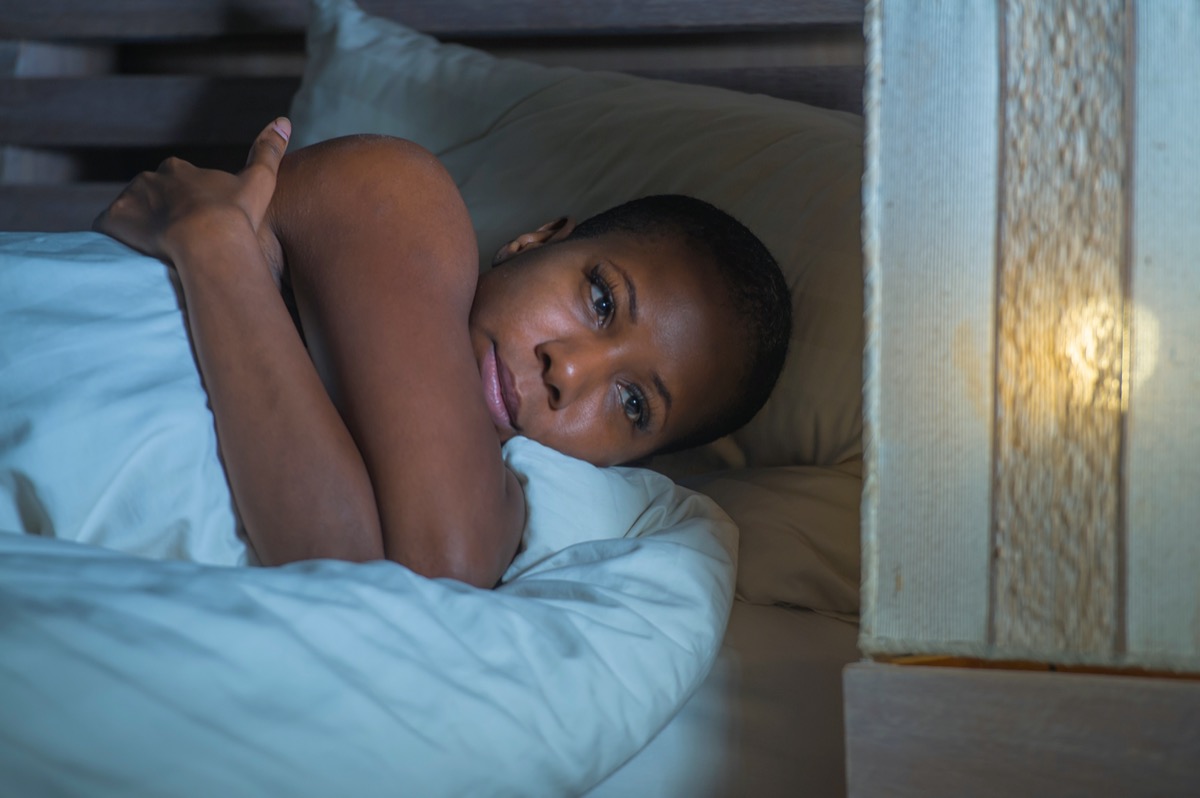
On the other end of the spectrum, eating sugar can also keep you up at night. While an after-dinner brownie might be tempting, you’re going to get a subsequent “sugar rush” right before bed, when you should be winding down and mellowing out instead. Additionally, “serotonin is produced in the gut and digestive track, which is essential for the creation of melatonin [the sleep-wake hormone],” says Beller. Your body isn’t going to properly make melatonin if it’s still digesting your dessert.
Research agrees: A 2016 study linked high-sugar, low-fiber diets to worsened sleep quality with more middle-of-the-night stirring.
Beller suggests staying away from excess sugar up to three hours before bedtime. If you’re really craving something sweet, opt for a juicy date or small bite of dark chocolate paired with a relaxing cup of tea. For more, check out the #1 Way to Crush Your Sugar Cravings.